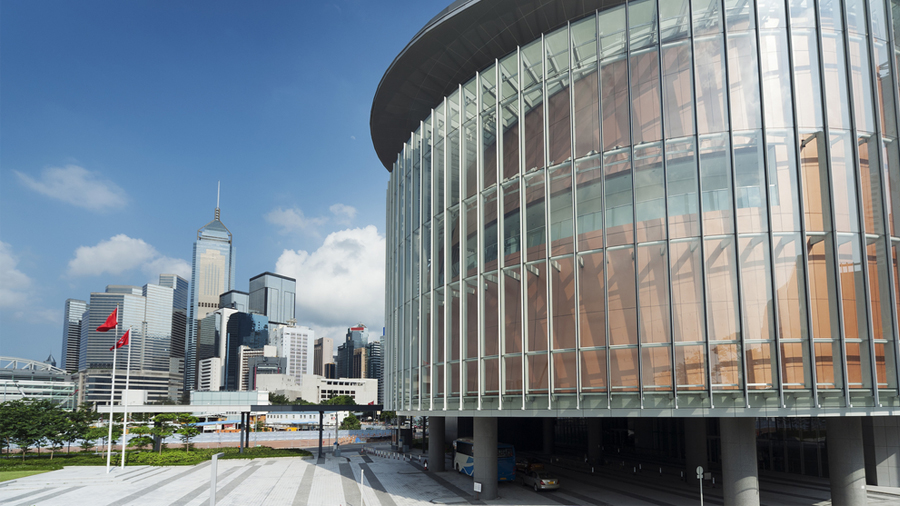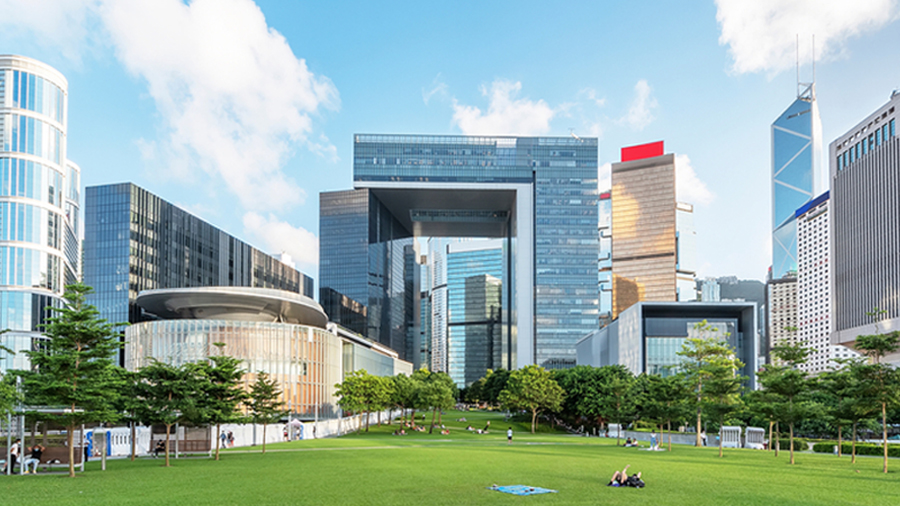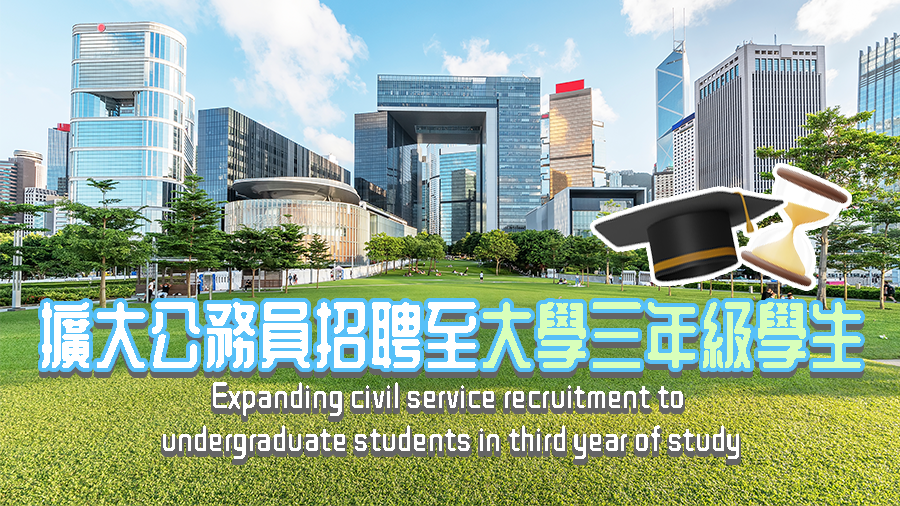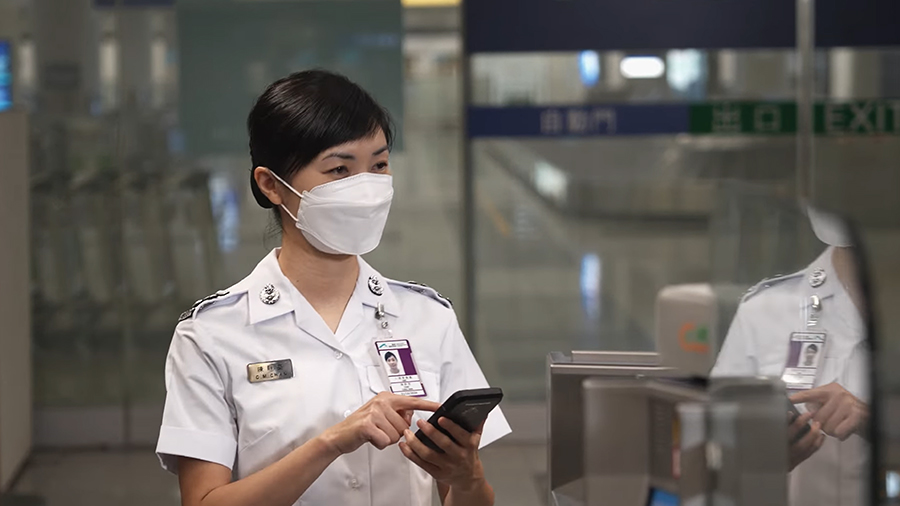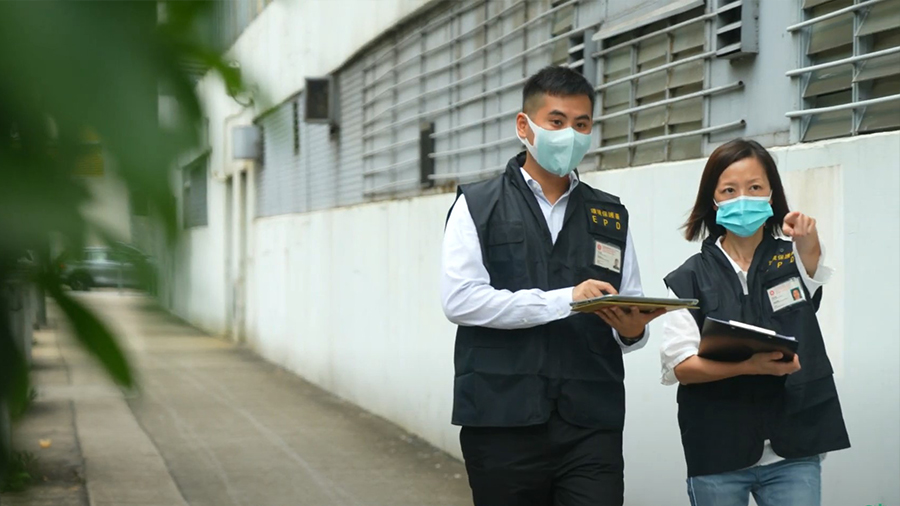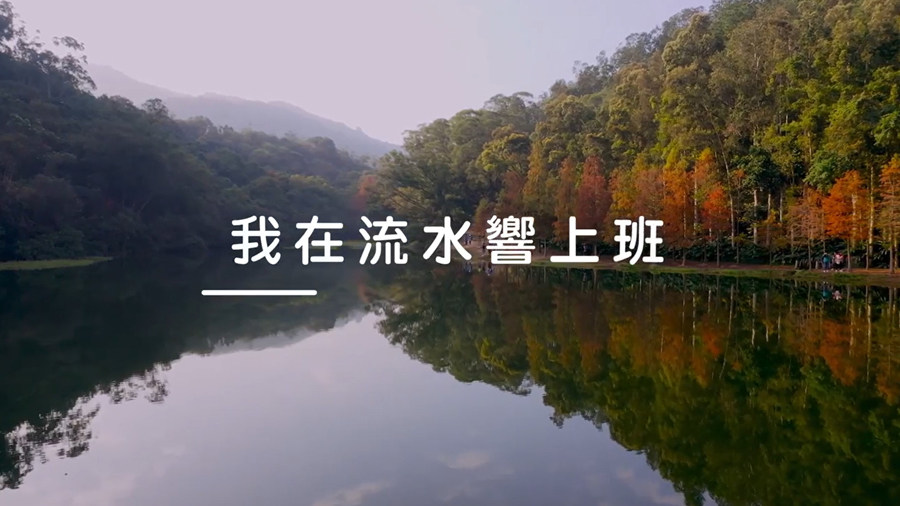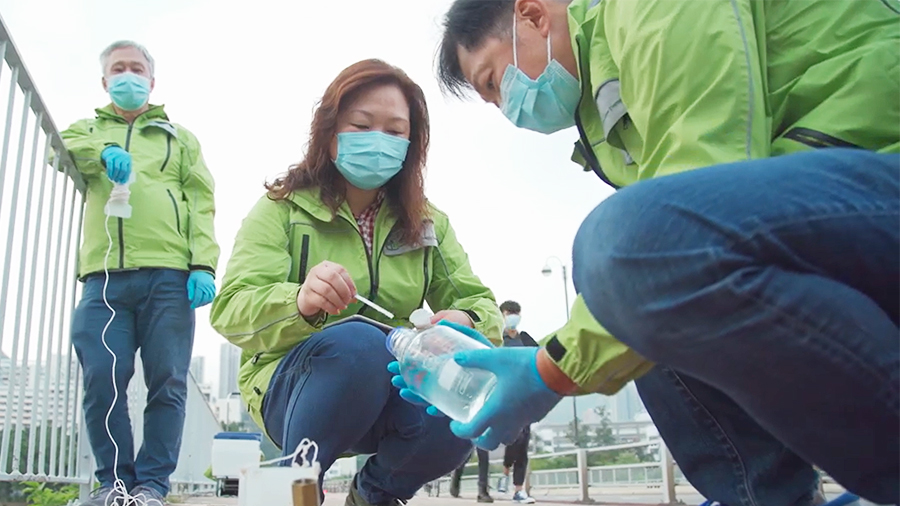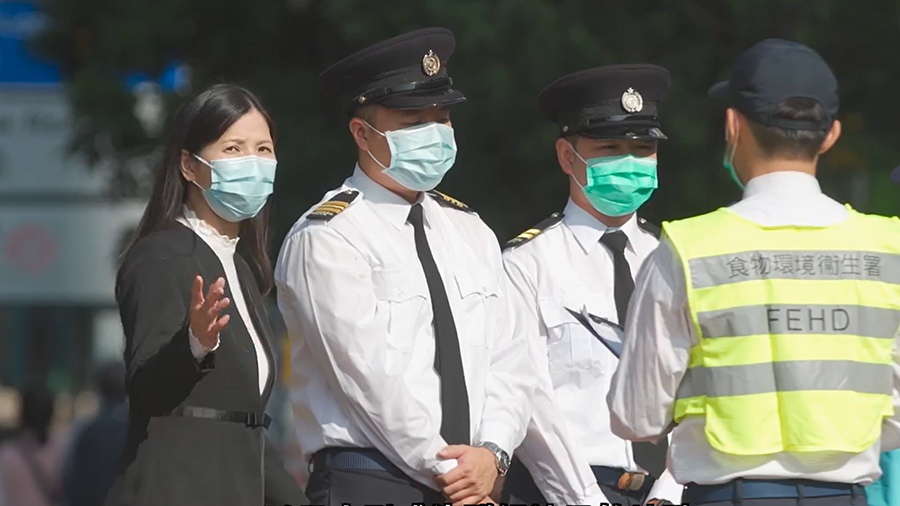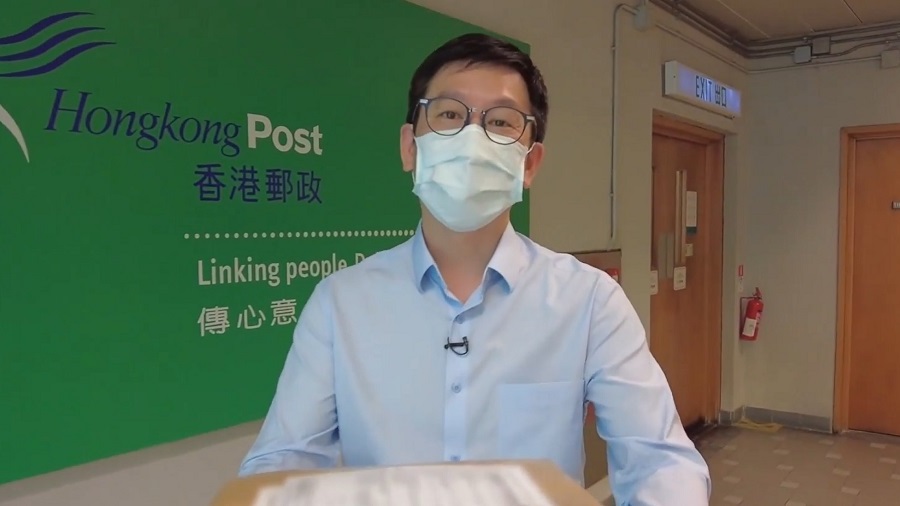#GovJob
Search Result: 57
The Post-Secondary Student Summer Internship Programme 2025 has been launched. The Programme provides internship placement opportunities for students who are permanent residents of the Hong Kong Special Administrative Region of the People’s Republic of China and enrolled in full-time programmes offered by post-secondary institutions in or outside the Hong Kong Special Administrative Region.Bureaux/departments would advertise their internship placement opportunities (where applicable) on their respective departmental websites and the Civil Service Bureau's (CSB) website. In addition, they may make arrangement with individual post-secondary institutions to nominate students for the Programme.Government Summer Intern Vacancies (As of 17 April 2025)Bureaux/departments: Architectural Services Department Job Title: Summer InternSalary: HK$11,200 per monthApplication Deadline: 18/4/2025 23:59:00Details: Click hereBureaux/departments: Highways DepartmentJob Title: Vacation Trainee (Vacation Training Scheme 2025)Salary: HK$11,200 per monthApplication Deadline: 18/4/2025 23:59:00Details: Click hereBureaux/departments: Correctional Services DepartmentJob Title: Summer InternsSalary: HK$11,200 per monthApplication Deadline: 21/04/2025 23:59:00Details: Click hereBureaux/departments: Innovation and Technology CommissionJob Title: 2025 Post-Secondary Student Summer Internship ProgrammeSalary: HK$11,200 per monthApplication Deadline: 21/04/2025 23:59:00Details: Click hereBureaux/departments: Leisure and Cultural Services Department Job Title: Summer Intern (Conservation Office) - Post-Secondary Student Summer Internship Programme 2025 Salary: HK$11,200 per monthApplication Deadline: 22/04/2025 23:59:00 Details: Click hereBureaux/departments: Education Bureau Job Title: Summer Intern [Educational Psychology Service (Multimedia Design)] Salary: HK$11,200 per monthApplication Deadline: 23/04/2025 18:00:00Details: Click here Bureaux/departments: Health Bureau Job Title: Summer Intern (Primary Healthcare Commission) Salary: HK$11,200 per monthApplication Deadline: 24/04/2025 18:00:00Details: Click here Bureaux/departments: Leisure and Cultural Services DepartmentJob Title: Post-Secondary Student Summer Internship Programme 2025 - Leisure Services Branch Salary: HK$11,200 per monthApplication Deadline: 24/04/2025 18:00:00Details: Click here Bureaux/departments: Drainage Services DepartmentJob Title: Summer Intern [2025 Post-Secondary Student Summer Internship Programme (Civil Engineering) (Code: CIV)] Salary: HK$11,200 per monthApplication Deadline: 25/04/2025 23:59:00Details: Click hereBureaux/departments: Leisure and Cultural Services Department Job Title: Summer Intern (Hong Kong Museum of Art) – Post-Secondary Student Summer Internship Programme 2025 Salary: HK$11,200 per monthApplication Deadline: 25/04/2025 23:59:00Details: Click hereBureaux/departments: Rating and Valuation DepartmentJob Title: Summer Intern (Post-Secondary Student Summer Internship Programme) Salary: HK$11,200 per monthApplication Deadline: 25/04/2025 23:59:00Details: Click hereBureaux/departments: Immigration Department Job Title: Summer Intern Salary: HK$11,200 per monthApplication Deadline: 28/04/2025 17:00:00 Details: Click hereApplication ProceduresStudents who are interested in the placement opportunities advertised may download the standard application form (Word format / PDF format) or use the prescribed application forms as provided by individual bureaux/departments (where applicable) and submit their applications to the recruiting bureaux/departments OR their respective institutions according to the methods as set out in the advertisements.(*Please follow the application procedures set out in the advertisements) (**To safeguard personal data privacy, students are reminded not to submit their personal data through other channels)(***Please note the deadlines set by the respective institutions)
Please refer to the Chinese version.(Video provided by the Civil Service Bureau)
Please refer to the Chinese version.(Video provided by the Civil Service Bureau)
Please refer to the Chinese version. (Video provided by the Civil Service Bureau)
Please refer to the Chinese version.(Video provided by the Civil Service Bureau)
Please refer to the Chinese version.
(Video provided by the Civil Service Bureau)
Please refer to the Chinese version.(Video provided by the Civil Service Bureau)
Please refer to the Chinese version. (Video provided by the Civil Service Bureau)
This video covers the scope of work, entry requirements, on-the-job training and promotion prospects of the Labour Officer grade in the form of a short drama. It also features officers’ sharing on work culture and job application tips.If you are eager to take up challenges, willing to explore various types of work, and wish to have a meaningful career as a professional labour administrator; seize the opportunity and take action now!For details of the Labour Officer grade, please visit www.labour.gov.hk. Please also refer to the latest announcement of the Civil Service Bureau for application details.
Tax Inspector GradeThe Inland Revenue Department (IRD) aims to be an excellent tax administration that plays an important part in promoting Hong Kong’s prosperity and stability. Officers of the Tax Inspector grade in the IRD are mainly deployed on carrying out inspections in connection with the various Ordinances administered by the IRD and are authorised to make enquiries, carry out inspections and review documentation as may be necessary for the administration of the relevant Ordinances. The video covers the entry requirements and responsibilities of the Tax Inspector post and features serving officers sharing details of their day-to-day work. If you wish to join the Tax Inspector Grade, please refer to the relevant webpages of the Civil Service Bureau or the IRD.(Video provided by Inland Revenue Department)
Taxation Officer Grade The Inland Revenue Department (IRD) aims to be an excellent tax administration that plays an important part in promoting Hong Kong’s prosperity and stability. Officers of the Taxation Officer grade in the IRD are deployed to assist in tax assessment, document processing, tax collection and recovery, and handle tax enquiries and other related duties. The video covers the entry requirements and responsibilities of the Taxation Officer post and features serving officers sharing details of their day-to-day work. If you wish to join the Taxation Officer Grade, please refer to the relevant webpages of the Civil Service Bureau or the IRD. (Video provided by Inland Revenue Department)
Assessor GradeThe Inland Revenue Department (IRD) aims to be an excellent tax administration that plays an important part in promoting Hong Kong’s prosperity and stability. Officers of the Assessor grade in the IRD are deployed on handling and carrying out assessment, collection of taxes and other duties under the Ordinances administered by the IRD. The video covers the entry requirements and responsibilities of the Assistant Assessor post and features serving officers sharing details of their day-to-day work. If you wish to join the Assessor Grade, please refer to the relevant webpages of the Civil Service Bureau or the IRD. (Video provided by Inland Revenue Department)
The recruitment of Personal Secretary II is open year-round! Click here to apply now. Duties A Personal Secretary II (PSII) is mainly deployed to carry out secretarial duties which may involve word processing, managing meetings and work schedule, handling enquiries and providing office support. A Personal Secretary II is subject to posting to any government offices in any districts of Hong Kong; is required to use information technology applications in the discharge of duties; and may be required to work irregular hours. Salary and Benefits Salary: Master Pay Scale Point 4 (HK$17,770 per month) to Master Pay Scale Point 15 (HK$34,060 per month). Fringe Benefits: Vacation leave; Medical and dental benefits; Housing benefits Entry Requirements (i) Level 2 or equivalent or above in five subjects including Mathematics in the Hong Kong Diploma of Secondary Education Examination (HKDSEE), or equivalent; or (ii) Level 2 / Grade E or above in five subjects including Mathematics in the Hong Kong Certificate of Education Examination (HKCEE), or equivalent; and Met the language proficiency requirements of Level 2 or above in Chinese Language and English Language in HKDSEE or HKCEE, or equivalent; and Chinese word processing speed of 20 words per minute and English word processing speed of 40 words per minute, and proficiency in the application of common business software; and A pass result in the Basic Law and National Security Law Test. Please visit the website of Civil Service Bureau and Government Vacancies Enquiry webpage for more details.
The recruitment of Assistant Clerical Officer is open year-round! Click here to apply now. Duties An Assistant Clerical Officer (ACO) is mainly deployed on general clerical duties which may involve multi-tasks relating to one or a combination of the following functional areas: (a) general office support; (b) personnel; (c) finance and accounts; (d) customer service; (e) licensing and registration; (f) support to Government Counsel, and court support and registry services to judges and court users; (g) statistical duties; (h) information technology support; and (i) other departmental support. An ACO is subject to posting to any government offices in any districts of Hong Kong; is required to use information technology applications in the discharge of duties; and may be required to work irregular hours or shifts and wear uniform at work. Salary and Benefits Salary: Master Pay Scale Point 3 (HK$16,695 per month) to Master Pay Scale Point 15 (HK$34,060 per month). Fringe Benefits: Vacation leave; Medical and dental benefits; Housing benefits Entry Requirements (i) Level 2 or equivalent or above in five subjects including Mathematics in the Hong Kong Diploma of Secondary Education Examination (HKDSEE), or equivalent; or (ii) Level 2 / Grade E or above in five subjects including Mathematics in the Hong Kong Certificate of Education Examination (HKCEE), or equivalent; and Met the language proficiency requirements of Level 2 or above in Chinese Language and English Language in HKDSEE or HKCEE, or equivalent; and Chinese word processing speed of 20 words per minute and English word processing speed of 30 words per minute, and knowledge in the application of common business software; and A pass result in the Basic Law and National Security Law Test. Please visit the website of Civil Service Bureau and Government Vacancies Enquiry webpage for more details.
The recruitment of Clerical Assistant is open year-round! Click here to apply now.DutiesA Clerical Assistant (CA) is mainly deployed on general and basic clerical duties which may involve multi-tasks relating to one or a combination of the following functional areas: (a) general office support; (b) personnel; (c) finance and accounts; (d) customer service; (e) licensing and registration; (f) statistical duties; (g) information technology support; and (h) other departmental support.A CA is subject to posting to any government offices in any districts of Hong Kong; is required to use information technology applications in the discharge of duties; and may be required to work irregular hours or shifts and wear uniform at work. Salary and BenefitsSalary: Master Pay Scale Point 1 (HK$14,735 per month) to Master Pay Scale Point 10 (HK$25,815 per month).Fringe Benefits: Vacation leave; Medical and dental benefits; Housing benefits Entry RequirementsCompleted Secondary 4 with subjects studied including Mathematics, or equivalent; andAttained a level of proficiency in Chinese Language and English Language equivalent to Secondary 4 standard; andChinese word processing speed of 15 words per minute and English word processing speed of 20 words per minute, and knowledge in the application of common business software; andA pass result in the Basic Law and National Security Law Test. Please visit the website of Civil Service Bureau and Government Vacancies Enquiry webpage for more details.
Roles and Duties of Official Languages OfficersOfficial Languages Officers are mainly deployed on the following types of duties in bureaux and departments:- translating Chinese into English and vice versa;- interpreting in English/Cantonese/Putonghua at boards, committees, meetings and interviews;- attending meetings for the purpose of producing minutes in Chinese and English;- providing language-related support services such as drafting and vetting documents in Chinese and English, and advising on the use of the two official languages; and- assisting in office management work. Entry Requirements1. a bachelor's degree from a university in Hong Kong, or equivalent; 2. attained Level 2 results in the two language papers (Use of Chinese and Use of English) in the Common Recruitment Examination (CRE), or equivalent; and3. a Pass result in the Basic Law and National Security Law Test (BLNST) (Degree / Professional Grades). (Remarks: Applicants will be required to pass the Official Languages Officer Written Examination) Official Languages Officer Written Examination (OLOWE)Eligible applicants will be invited to sit for the OLOWE. The OLOWE includes papers on Practical Writing (Chinese and English) and Translation (Chinese to English and vice versa). Applicants who pass the OLOWE will be selected for interpretation test and interview based on their results in the OLOWE. Those who are not selected for interpretation test and interview will be notified in writing in eight to ten weeks after the examination. As it takes time to process all applications, an invitation to the OLOWE does not imply that an applicant's qualifications meet the entry requirements. Tips for Taking the OLOWE* 攻略1︰平日根基要打穩 攻略2︰應試答題勿慌忙 攻略3︰筆試前夕準備清單 Tips for Taking the Interpretation Test and Interview* *Source: Civil Service Bureau Facebook; Chinese only Remuneration Package1. Starting Salary: Master Pay Scale Point 14, which is at present HK$32,430 per month2. Annual Vacation Leave: 18 days per year3. Fringe Benefits: medical and dental benefits; housing benefitsFor more details, please visit the website of Civil Service Bureau.
Roles and DutiesAOs take up different positions in bureaux and departments, as well as district, Mainland and overseas offices in the Government at regular intervals. Through regular rotation of jobs, AOs receive wide exposure and acquire expertise in different policy areas, as well as develop multi-skills and accumulate rich experience in public administration. Not only are they required to possess a good understanding of their respective policy areas, they should also be alert and sensitive in listening to the views of different stakeholders and members of the public so that they are able to approach policy work with the overall public interest in mind. In formulating policies that contribute to the long-term development and benefits of Hong Kong, AOs also work closely with members of professional grades both within and outside the Government (such as various regulatory authorities and statutory bodies). Annual Recruitment Timeline *The information below is FOR REFERENCE ONLY. The actual periods and details of events will be announced nearer the events. You are advised to refer to the announcements made by then.>>Beginning of Recruitment CycleEnd of Recruitment Cycle
Roles and DutiesExecutive Officers are professional managers who specialise in resource and system management. Posted around different government policy bureaux and departments, they enjoy a wide variety of work and have the opportunity to work with people of different backgrounds. They will be provided with structured training at various stages of their career to develop them into professional resource and system managers.The Government looks for quality people with leadership potential and commitment. Executive Officers should have good analytical ability and judgement, as well as good interpersonal and communication skills. They should also be versatile and innovative. Above all, we look for talents who share the Grade's vision to serve Hong Kong by providing the highest quality of service in the management of public organisations. 2023-24 Recruitment Exercise Timeline - Application Period for the Executive Officer II (EOII) Post -> Begins in mid-September 2023- Joint Administrative Officer / Executive Officer / Labour Officer / Trade Officer / Management Services Officer / Transport Officer Recruitment Examination (JRE) -> 2 December 2023 (tentative)- Selection Interview -> February to May 2024 (tentative)- Earliest Batch of Offers of Appointments (subject to clearance of all recruitment formalities) -> May 2024 (tentative) *The above information on timeline is for reference only. Entry Requirementsa. a bachelor's degree from a university in Hong Kong, or equivalent; andb. a Pass result in the Aptitude Test paper in the Common Recruitment Examination (CRE); andc. a good command of both Chinese and English and have met the language proficiency requirements of "Level 2" results in the two language papers (Use of Chinese and Use of English) in the CRE (or equivalent results); andd. a Pass result in the Basic Law and National Security Law Test (BLNST) (Degree / Professional Grades). Remuneration Package1. Starting Salary: The entry pay for an Executive Officer II is Master Pay Scale Point 15 which is at present HK$34,060 per month2. Annual Vacation Leave: Annual vacation leave of 18 days per year3. Fringe Benefits - medical and dental benefits; housing benefits For more details, please visit the website of Civil Service Bureau. Applicants could watch the video below for better preparation of the interview.(The video is broadcasted in Cantonese)
In order to attract people with aspirations to serve the community to join the civil service and to enable young people to better plan their future career development, starting from this year, the Government will expand the pool of eligible candidates for civil service jobs requiring an undergraduate degree to students advancing to their third year of undergraduate studies (in a four-year curriculum) in the new academic year or those currently in their third year of undergraduate studies. Recommended candidates will be granted a conditional offer and will join the Government upon graduation. In the past, government departments/grades would generally consider only final year students or those who have already obtained the relevant qualifications during recruitment. Under the new initiative, departments/grades may, having regard to their manpower resources and operational needs, consider whether to expand the pool of eligible candidates to undergraduate or postgraduate students in their penultimate year of study, so they may apply for civil service jobs requiring an undergraduate or a postgraduate qualification. Such arrangements will be clearly set out in the recruitment advertisements. Successful candidates with conditional offers can join the civil service upon graduation, subject to their fulfillment of specified conditions, including the completion of the relevant academic qualification within a stipulated period of time. [Video in Chinese only] Civil service recruitment examination arrangements The Common Recruitment Examination (CRE) and the Basic Law and National Security Law Test (Degree/Professional Grades) (BLNST) tentatively scheduled for October (in Hong Kong) and December (in cities outside Hong Kong) this year, and the Joint Recruitment Examination for Administrative Officer, Executive Officer II, Assistant Labour Officer II, Assistant Trade Officer II, Management Services Officer II and Transport Officer II (JRE) scheduled for December (in Hong Kong and cities outside Hong Kong) will be open to persons holding a bachelor's degree, final year undergraduate students (i.e. graduating in the 2023-24 academic year), and penultimate year undergraduate students graduating in the 2024-25 academic year. The next round of the CRE and BLNST is tentatively scheduled to be open for application in August (for examinations in Hong Kong) and September (for examinations outside Hong Kong) this year, while the JRE (for examinations in and outside Hong Kong) is tentatively scheduled to be open for application in September. For details of the civil service recruitment examination arrangements, please visit the Civil Service Bureau's webpage. It is expected that similar arrangements will be announced by different departments/grades. If you wish to apply for civil service jobs early, remeber to pay attention to the recruitment and examination details concerned!
The Government provides numerous job opportunities each year, many of which accepts application all year round. No recruitment deadlines are set for these job posts and interested candidates may submit their applications throughout the year. In March 2023, the below Government jobs are accepting applications all year round. Check them out if you are interested. Civil Service Vacancies which accept all year round applications Job title: Correctional Services Department - Assistant Officer II Salary: HKD$22325 Per Month Academic Requirement: Secondary 5Details and Apply Job title: Customs and Excise Department - Customs OfficerSalary: HKD$23625 Per MonthAcademic Requirement: HKDSEE results/HKCEE resultsDetails and Apply Job title: Department of Health - Dental HygienistSalary: HKD$18120 Per Month Academic Requirement: Associate Degree or Higher DiplomaDetails and Apply Job title: Department of Health - Dental OfficerSalary: HKD$65875 Per Month Academic Requirement: Professional QualificationDetails and Apply Job title: Department of Health - Medical and Health Officer Salary: HKD$72225 Per Month Academic Requirement: Professional QualificationDetails and Apply Job title: Fire Services Department - Station Officer (Operational) Salary: HKD$44840 Per Month Academic Requirement: Degree/Associate Degree or Higher Diploma/Diploma from a registered post-secondary college/HKDSEE results/HKALE results Details and Apply Job title: Hong Kong Police Force - Police ConstableSalary: HKD$26845 Per Month Academic Requirement: HKDSEE results/HKCEE resultsDetails and Apply Job title: Hong Kong Police Force - Police Inspector Salary: HKD$48255 Per Month Academic Requirement: Degree/Associate Degree or Higher Diploma/Diploma from a registered post-secondary collegeDetails and Apply Job title: Immigration Department - Immigration Assistant Salary: HKD$23295 Per Month Academic Requirement: HKDSEE results/HKCEE resultsDetails and Apply Non-Civil Service Vacancies which accept all year round applications Job title: Department of Health - Contract DoctorSalary: HKD$65875 Per Month Academic Requirement: Professional QualificationDetails and Apply Job title: Department of Health - Contract Doctor (Special Registration)Salary: HKD$65875 Per Month Academic Requirement: Professional QualificationDetails and Apply Job title: Department of Health - Contract Doctor (Families Clinic) Salary: HKD$65875 Per Month Academic Requirement: Professional QualificationDetails and Apply Job title: Department of Health - Contract Doctor (Antimicrobial Resistance) Salary: HKD$65875 Per Month Academic Requirement: Professional QualificationDetails and Apply Job title: Department of Health - Contract Doctor (without Full Registration)Salary: HKD$65875 Per Month Academic Requirement: Professional QualificationDetails and Apply Job title: Department of Health - Contract Doctor (without Full Registration) (Families Clinic) Salary: HKD$65875 Per Month Academic Requirement: Professional QualificationDetails and Apply Job title: Department of Health - Contract Doctor (without Full Registration) (Antimicrobial Resistance) Salary: HKD$65875 Per Month Academic Requirement: Professional QualificationDetails and Apply Job title: Department of Health - Contract Senior Doctor (Antimicrobial Resistance) Salary: HKD$129375 Per Month Academic Requirement: Professional QualificationDetails and Apply Job title: Department of Health - Contract Senior Doctor (Private Healthcare Facilities) Salary: HKD$129375 Per Month Academic Requirement: Professional QualificationDetails and Apply Job title: Department of Health - Part-time Contract Doctor Salary: HKD$426 Per Hour Academic Requirement: Professional QualificationDetails and Apply Job title: Department of Health - Part-time Contract Doctor (Narcotics & Drug Administration Division) Salary: HKD$426 Per Hour Academic Requirement: Professional QualificationDetails and Apply Job title: Department of Health - Senior Clinician (Orthodontics) Salary: HKD$129375 Per Month Academic Requirement: Professional QualificationDetails and Apply Job title: Department of Health - Senior Clinician (Oral Maxillofacial Surgery) Salary: HKD$736 per hourAcademic Requirement: Professional QualificationDetails and Apply Job title: Department of Health - Contract Dentist (Orthodontics) Salary: HKD$88015 Per Month Academic Requirement: Professional QualificationDetails and Apply Job title: Department of Health - Contract Dentist (Oral Maxillofacial Surgery) Salary: HKD$65875 Per Month Academic Requirement: Professional QualificationDetails and Apply Job title: Department of Health - Part-time Contract Dentist (Endodontics) Salary: HKD$519 per hourAcademic Requirement: Professional QualificationDetails and Apply Job title: Department of Health - Part-time Contract Dentist (Community Dentistry) Salary: HKD$388 per hourAcademic Requirement: Professional QualificationDetails and Apply Job title: Department of Health - Part-time Senior Clinician (Endodontics)Salary: HKD$736 per hourAcademic Requirement: Professional QualificationDetails and Apply Job title: Education Bureau - Temporary Laboratory Technician IISalary: HKD$21875 per monthAcademic Requirement: HKDSEE results/HKCEE results Job title: Education Bureau - Temporary Teacher (Government Primary School) Salary: HKD$35915 Per Month Academic Requirement: Degree/Teacher CertificateDetails and Apply Job title: Education Bureau - Temporary Teacher (Government Secondary School) Salary: HKD$32545 Per Month Academic Requirement: DegreeDetails and Apply Job title: Education Bureau - Various posts in Government Secondary and Primary SchoolsSalary: HKD$13315 Per Month Academic Requirement: Degree/Associate Degree or Higher Diploma/Diploma or Higher Certificate/HKALE results/HKCEE results/Secondary 5/Secondary 4/Others : Completion of Primary 6 or aboveDetails and Apply Job title: Government Logistics Department - Binding Machine Operator Salary: HKD$101.6 Per HourAcademic Requirement: Diploma or Higher Certificate/Certificate/Secondary 3 or below/Primary 6 or below/Others: satisfactorily completed an approved and relevant Printing Apprenticeship Scheme.Details and Apply Job title: Government Logistics Department - Printing LabourerSalary: HKD$65.8 Per HourAcademic Requirement: Primary 6 or belowDetails and Apply Job title: Government Logistics Department - Printing Machine Operator Salary: HKD$106.3 Per HourAcademic Requirement: Diploma or Higher Certificate/Certificate/Secondary 3 or below/Primary 6 or below/Others: satisfactorily completed an approved and relevant Printing Apprenticeship Scheme.Details and Apply For other Governement Jobs vancancies, please visit "Government Vacancies" in Civil Service Bureau website。
Acting Chief Immigration Assistant of the Immigration Department Ms Chan Ching-man was commended for her outstanding work performance at the Secretary for the Civil Service's Commendation Award Presentation Ceremony 2022. During her tenure as an instructor at the Immigration Service Institute of Training and Development, Ms Chan strived to set a good example for new recruits and cultivate the trainees' spirit of teamwork and serving the public. She also worked on the front line at various land, sea and air boundary control points and performed her job well in exercising effective immigration control. For more information on the subject, please visit the Facebook page of Civil Service Bureau.
This story is only available in Chinese. For more information on the subject, please visit the Leisure and Cultural Services Department Facebook Page.
Winner of The Ombudsman’s Awards 2021 for Officers of Public Organisations“Take complaints seriously and try my best to remedy problems” Mr Tsang Kai Ho, Environmental Protection Officer (Regional West) 13 of Environmental Protection Department"In October 2020, we received complaints from the public about polluted water discharge in Tuen Mun River. My team and I immediately carried out inspections to check the source of the sewage and conducted various tests to examine the condition of the public sewer and stormwater drains. In the end, we found that the incident was due to drainage leakage, causing the sewage to flow into the stormwater drain. We forwarded the case to the relevant department for arranging repair work in November, and the problem was then resolved." (The video is in Cantonese) For more details of The Ombudsman’s Awards 2021, please visit the website of the Office of The Ombudsman.
This story is only available in Chinese. For more information on the subject, please visit the Facebook page of Agriculture, Fisheries and Conservation Department.
This story is only available in Chinese. For more information on the subject, please visit the Facebook page of Hong Kong Country Parks.
This story is only available in Chinese. For more information on the subject, please visit the Facebook page of Civil Service Bureau.
This story is only available in Chinese. For more information on the subject, please visit the Facebook page of Civil Service Bureau.
Government jobs have always been popular, yet some of them require the candidates to sit for the Common Recruitment Examination (CRE) and Basic Law and National Security Law Test (BLNST). So what are the eligibilities for applying the CRE and BLNST?>>>Must be a holder of a Bachelor’s Degree or will attain one in next academic yearPlease note that, however, an Associate Degree does not count. Applicants who fall into neither of the above two categories should hold a qualification that meets the entry requirements on professional qualifications for civil service degree or professional posts.If you are a registered student of the Hong Kong Institute of Certified Public Accountants (HKICPA) Qualification Programme, you may apply to sit for the CRE and BLNST even if you do not possess a degree since the said qualification is accepted for applying for the post of Assistant Assessor.However, if you are a registered social worker under the Social Workers Registration Ordinance but do not possess a degree, you are not eligible for sitting for the CRE and BLNST since the entry requirements for the post of Assistant Social Work Officer include both a professional qualification and a relevant degree.Before applying for the CRE and BLNST, you are advised to check from the CSB website and with the recruiting departments concerned to confirm whether the qualification you are holding is accepted for appointment to the relevant civil service degree / professional post(s). You may also contact the Civil Service Examinations Unit by phone at 2537 6429, by e-mail to csbcseu@csb.gov.hk, or by post to Room 718, 7/F, West Wing, Central Government Offices, 2 Tim Mei Avenue, Tamar, Hong Kong for relevant details. Contributing Editor: Sophie
This story is only available in Chinese. For more information on the subject, please visit the Facebook page of Civil Service Bureau.





















